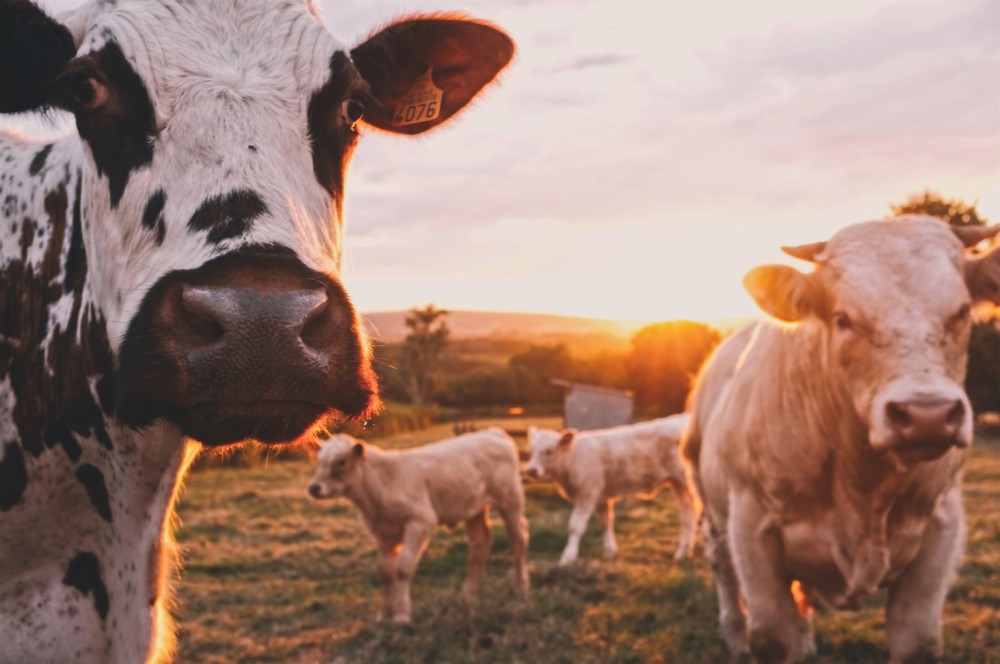
Photo by Stijn te Strake on Unsplash
by Diana O. Potter, VEGWORLD Senior Editor
To paraphrase Sir Isaac Newton’s saying about up and down, what goes in must come out. And so it’s been for as long as cattle have been eating, farting, and belching. But where Newton implied equal as well as opposite effects, scientists and researchers are now working to enable cattle to emit significantly less gas, particularly methane, in proportion to how much they eat.
This remarkable statement instantly causes vegans to think of the worldwide environmental damage from climate change contributed by the planet’s 1.4 billion cattle. Did you know that just ONE cow emits, every year, 1.5 to 2.5 metric TONS of carbon dioxide into the atmosphere? That’s about half the emissions from an average American car! PER COW. And yet, there’s something even worse:
- Over a 20-year timeframe, carbon dioxide can’t compare with the global warming potential (GWP) of methane, which is 104 TIMES greater!
So it’s good news that, as The New York Times reports, important progress toward reducing cattle emissions, especially methane, has already been made and is continuing. Over the past five years, a number of startup companies and research groups have been developing a chemical-supplement product that, added to cattle food, changes their gastric chemistry, thereby lessening their methane emissions.
Perhaps the best known of these is Mootral, made by a Swiss startup company. Mootral is a pellet composed mainly of garlic (I didn’t say it improved cows’ breath!) along with citrus, and other additives. Mixed in correct proportion into cows’ food – each cow eats between 75 and 110 pounds of grass and similar crops a day – it has been shown to reduce the animals’ methane-dense belches, as measured with a special laser instrument, by up to 30%.
Interestingly, cows given Mootral and similar products also tend to produce more milk and attract fewer flies (that breath thing again?).
Here’s another “Did you know?”: Almost all of cattle’s methane emissions are through belches; only a small amount exits in the rear, so to speak….
Despite investor setbacks due to the COVID-19 pandemic, the startups working to bring Mootral and emerging products like it to market are predicting that, expected to cost about $60 per cow or bull per year, the supplements will sell well to beef suppliers who service restaurant and fast-food chains as well as large meat and dairy companies. These businesses should be willing to accept the small added cost, since they’ll be showing they are working to satisfy eco-concerned customers and increasing sustainability mandates.
Turn cattle gas into money? Who knew?? Stay tuned!


This helps the environment a little bit, but doe snot help the cow. It will suffer all of its life and still be killed in the end